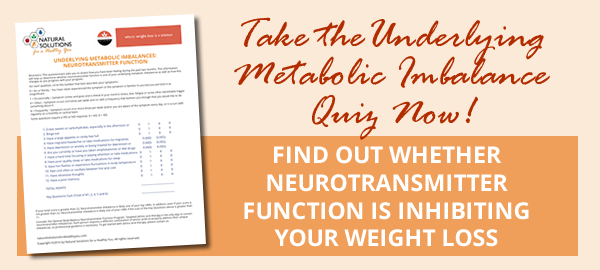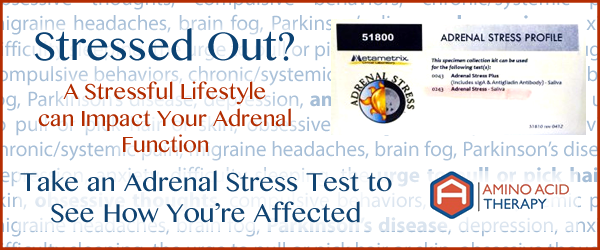by Dr. Oler, ND | Sep 23, 2021 | Amino Acid Therapy, Depression, Menopause, Migraine, Neurotransmitter Function, Neurotransmitter Imbalances, Parkinson's Disease, Restless Leg Syndrome, Trichotillomania, Weight Loss
Neurotransmitters are chemical messengers that the body uses to relay information. Many people are on medications to alter neurotransmitter levels or function in an attempt to improve their health. However, people need to know how these medications work and which neurotransmitters are impacted in order to understand if and how they can optimize their health.
(more…)

by Dr. Oler, ND | Mar 7, 2019 | Eating Naturally, Naturopathic Health, Neurotransmitter, Neurotransmitter Function, Neurotransmitter Imbalances, Nutrition
Aspartame is a widely used artificial sweetener. Since its discovery in 1965, it has been used in thousands of food products as a non-caloric sweetener. Aspartame is about 200 times sweeter than sucrose (table sugar). However, aspartame is not the only artificial sweetener found in foods; others include saccharin, neotame, acesulfame potassium, and sucralose. More than 6000 new products that contain artificial sweeteners were launched in the United States between 1999 and 2004, including soft drinks, baby food, Pedialyte, frozen foods, chewing gum and many (many) foods aimed at weight loss and blood sugar management (see other posts on the effects of artificial sweeteners and blood sugar and weight gain). (more…)

by Dr. Oler, ND | Sep 15, 2016 | Neurotransmitter, Neurotransmitter Function, Neurotransmitter Imbalances
Neurotransmitter imbalances can be caused by many different factors, including:
- Food intolerances
- Stress
- Toxic burden
- Sleep disturbances
- Alcohol
- Digestive imbalances
- Dietary deficiencies
- Genetics
- Drug use
- Medication use, including antidepressants, anti‐anxiety, sleep and migraine medications
Therefore, one of the keys to determining how to correct the underlying imbalances is to determine each individual’s unique cause(s) of imbalance and addressing them
Neurotransmitters are made in the body from specific amino acids and cofactors, like B‐vitamins, selenium, and other vitamins and minerals. Given the right proportions of each of these nutrients at the right time, the body will make the neurotransmitters it needs.
We often use a very powerful test, called a Comprehensive Metabolic Profile, that identifies each individuals specific needs for B‐vitamins, nutrients involved in cellular energy production, neurotransmitter metabolism, nutrients involved in detoxification, markers for gastrointestinal flora (dysbiosis) imbalance, essential fatty acids balance, free radical and antioxidant status and sensitivities to the thirty (30) most common food intolerances. It is a wonderful test that can be performed in the comfort of your own home and sent in. Once we get the results, we review them with you over the phone and give you recommendations to address any imbalances present.

If you are not interested in doing testing to determine your exact imbalances, all is not lost. We have used several formulas with great success in helping people rebalancing their neurotransmitter levels naturally. For more information on testing and non‐testing options, please contact us by phone (608.274.7044) or email (customercare@naturalpathhealthcenter.com).

by Dr. Oler, ND | Aug 15, 2016 | Amino Acid Therapy, Health Partner News, Neurotransmitter, Neurotransmitter Function, Neurotransmitter Imbalances, Underlying Metabolic Imbalances, Weight Loss
Neurotransmitters are a class of chemical messengers in the body that help regulate many body functions. Most people have heard of several common neurotransmitters, including serotonin, dopamine, norepinephrine and epinephrine (also known as adrenaline) and are familiar with some of their functions in regards to mood and sleep. What many people do not know is that your neurotransmitter balance may dramatically affect your ability to lose and maintain your weight. Read more…


by Dr. Oler, ND | May 25, 2016 | Amino Acid Therapy, Health Partner News, Neurotransmitter, Neurotransmitter Function, Neurotransmitter Imbalances
When most people think about neurotransmitter imbalances, they think of things like depression, insomnia and obsessive-compulsive disorders. That’s because the medications used to treat these disorders often try to shuffle around neurotransmitters in an attempt to relieve symptoms.
(more…)

by Dr. Oler, ND | May 19, 2016 | Health Partner News, Neurotransmitter Function, Stress, Testing Category, Trichotillomania
Psychotherapy, especially cognitive behavioral therapy (CBT) can be very effective at dealing with the behavioral aspects of trichotillomania and the urges to pull. In fact, many people have found psychotherapy invaluable to help them stop pulling their hair and/or picking their skin by helping them become aware of their impulses and then making a conscious choice about how they can make it harder for themselves to pull. What psychotherapy does not do, at least not for most people, is get rid of the urges to pull. For many people, additional support is needed to do this. Read more…









